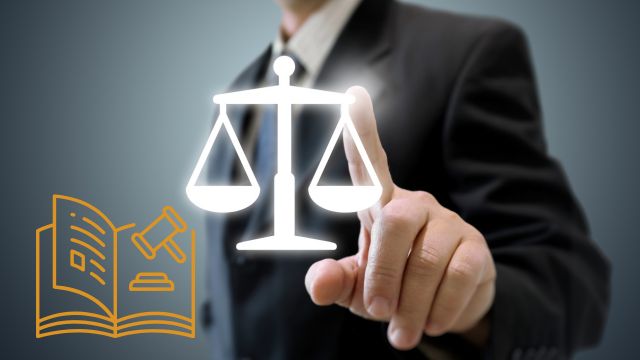What Does a Criminal Lawyer Do?
Criminal lawyers are one of the most important members of our legal system. However, their jobs are often shrouded in intrigue and mystery. What does a criminal defence lawyer do? What do they do day-to-day? How do they navigate the legal issues, what does preparing cases involve? And are criminal lawyers ever in any real danger? These are just some of the pressing questions that you might have about criminal lawyers and what they do. This article will aim to break down some of the mystique that surrounds criminal lawyers and answer your very pressing questions.
What is the Difference Between a Lawyer and a Criminal Lawyer?
In Australia, the difference between a criminal lawyer and a general practice lawyer lies in their area of specialisation. Criminal defence lawyers focus on criminal law and handle cases related to criminal offences, representing individuals accused of crimes within the criminal justice system. On the other hand, a general practice lawyer deals with a broader range of legal matters, such as family law, civil disputes, property law, and commercial transactions, catering to clients’ non-criminal legal needs.
In Australia, both criminal defence lawyers and general practice lawyers must complete a law degree first. This may either be a Bachelor of Laws (LLB) or a Juris Doctor (JD) degree from a recognised Australian university. They also need to undergo practical legal training (PLT) to develop practical skills for legal practice. Upon completion of PLT, aspiring lawyers must be admitted to the legal profession by meeting the requirements of the admitting authority in their state or territory.
While there are no specific additional qualifications for criminal lawyers, they often gain expertise through practical experience in criminal cases and ongoing professional development in the field. This helps them navigate the criminal justice system more effectively. Some criminal solicitors also have backgrounds in criminology, policing, or forensic studies, which can give them deeper insights into crime scenes and evidence evaluation.
What Are the Responsibilities of a Criminal Lawyer?
As a criminal defence lawyer in Sydney, no day is ever the same. One moment you may be negotiating with police prosecutors at the Local Court, and the next preparing submissions for a jury trial in the Supreme Court. Below are the core responsibilities criminal lawyers handle daily:
Client Consultations
Criminal defence lawyers begin their day by meeting with clients to discuss their cases. These consultations involve listening to the client’s side of the story, gathering relevant information, and providing legal advice. Lawyers explain the charges, potential legal consequences, and available defence strategies, ensuring clients have a clear understanding of their rights and options. Many firms, including Jameson Law, provide initial free consultations to help clients make informed decisions.
Case Analysis and Strategy
Lawyers conduct comprehensive case analyses, reviewing evidence, police reports, and witness statements. They assess the strengths and weaknesses of the prosecution’s case and identify potential defences. This might include self-defence, lack of intent, or mistaken identity. Criminal solicitors then develop strategies to protect their client’s rights and achieve the most favourable outcome.
Legal Research and Preparation
Criminal lawyers dedicate significant time to legal research. They review the Crimes Act 1900 (NSW), sentencing guidelines, and recent precedents published by AustLII. They also prepare motions, submissions, and briefs to support their client’s case. This research ensures that their defence arguments are supported by law and persuasive before the court.
Courtroom Advocacy
One of the most visible roles of a criminal lawyer is courtroom advocacy. They appear in court hearings, trials, and sentencing. They present oral arguments, cross-examine prosecution witnesses, and make legal submissions. Strong courtroom advocacy skills are essential, and many lawyers regularly train through Law Society of NSW CPD programs to refine their skills.
Negotiations and Plea Bargaining
Many cases never reach a full trial. Criminal defence solicitors often negotiate plea deals with the prosecution. This could involve pleading guilty to a lesser charge in exchange for a reduced sentence. Skilled negotiation can save clients from harsher penalties and lengthy trials. For example, someone facing an aggravated assault charge might have it reduced to a common assault if mitigating circumstances are effectively presented.
Client Communication and Support
Maintaining transparent communication is crucial. Criminal lawyers update clients about case progress, explain possible outcomes, and offer emotional support. Facing criminal charges can be overwhelming, and lawyers play a vital role in guiding clients through the uncertainty of the process.
Case Management and Administration
Criminal lawyers also manage administrative work such as filing applications, keeping track of deadlines, and ensuring compliance with court directions. Even small mistakes in case management can have significant consequences, so diligence is key.
Continued Professional Development
To remain effective, criminal defence solicitors undertake ongoing professional development. They attend Legalwise seminars, workshops, and courses to stay updated on new legislation, case law, and defence techniques. This ensures their advice remains current and reliable.
Where Can I Find a Criminal Lawyer?
Finding the right criminal lawyer can feel daunting. Fortunately, Sydney has a wide range of experienced solicitors. Jameson Law is recognised as one of the leading firms in NSW, offering defence for charges ranging from drink driving to complex fraud matters. When choosing, look for firms with strong reviews, such as the Law Society directory, and ensure your lawyer is admitted to practise in NSW courts.
What Should I Expect When I Meet My Criminal Defence Lawyer?
When you first meet with your criminal lawyer, you can expect a confidential consultation. Your lawyer will ask detailed questions about your matter, explain your options, and outline the next steps. They may also request documents such as police facts sheets, witness statements, or bail conditions. This first meeting sets the tone for your defence strategy.
What Skills Do Criminal Lawyers Need?
Criminal lawyers need a wide range of skills to succeed, including:
![]() Strong legal knowledge of NSW criminal law and procedure.
Strong legal knowledge of NSW criminal law and procedure.
![]() Analytical skills to evaluate evidence and case strengths.
Analytical skills to evaluate evidence and case strengths.
![]() Courtroom advocacy and cross-examination skills.
Courtroom advocacy and cross-examination skills.
![]() Negotiation and mediation abilities.
Negotiation and mediation abilities.
![]() Empathy and communication with clients under stress.
Empathy and communication with clients under stress.
![]() Ongoing professional learning through Law Society of NSW CPD programs.
Ongoing professional learning through Law Society of NSW CPD programs.
Considering a Career as a Criminal Lawyer?
If you’re considering a career in criminal law, here are some steps to follow:
![]() Pursue a law degree such as an LLB or JD.
Pursue a law degree such as an LLB or JD.
![]() Complete Practical Legal Training (PLT).
Complete Practical Legal Training (PLT).
![]() Gain experience through clerkships, internships, or Legal Aid NSW.
Gain experience through clerkships, internships, or Legal Aid NSW.
![]() Join professional associations like the Community Legal Centres NSW or Criminal Law Committees.
Join professional associations like the Community Legal Centres NSW or Criminal Law Committees.
![]() Focus on advocacy, research, and negotiation skills.
Focus on advocacy, research, and negotiation skills.
Essential Traits of a Good Criminal Defence Lawyer
When choosing your lawyer, consider traits like experience, empathy, communication, and proven courtroom advocacy. A skilled Sydney criminal lawyer should combine legal knowledge with personal dedication to client outcomes.
What is the Difference Between a Criminal Lawyer and a Barrister?
In Australia, the roles of solicitors and barristers are distinct but complementary. A criminal lawyer (solicitor) works directly with clients, prepares evidence, and manages the case. A barrister, meanwhile, specialises in courtroom advocacy and is often briefed by solicitors for complex trials. For example, a barrister in NSW may be engaged for jury trials or appeals requiring high-level expertise.
Final Thoughts
Criminal defence lawyers play an indispensable role in the justice system. They protect rights, provide advocacy, and ensure fairness in every case. Whether you’re seeking legal advice, considering a legal career, or simply curious about what criminal lawyers do, understanding their responsibilities highlights how crucial they are in safeguarding justice.
At Jameson Law, our team of experienced criminal solicitors in Sydney is here to help. From traffic offences to serious indictable crimes, we provide expert guidance and strong representation tailored to your circumstances.













